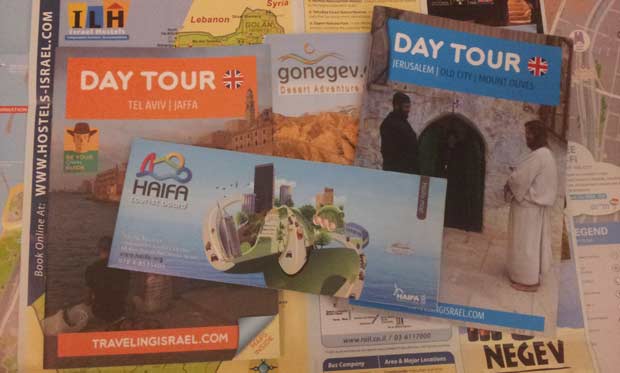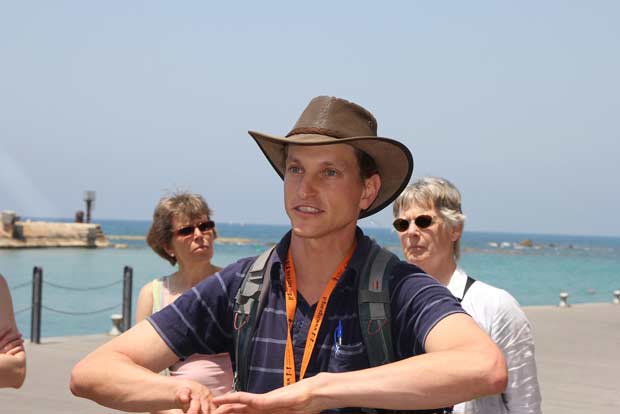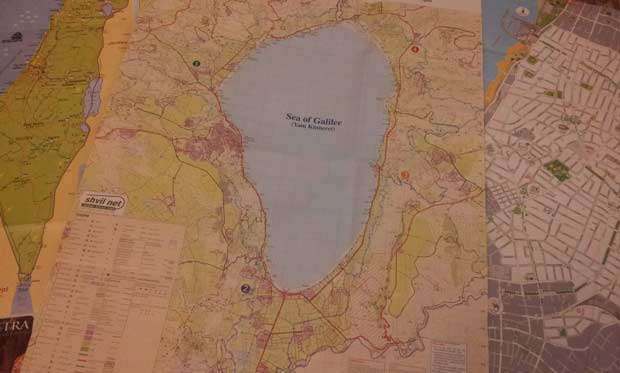Check out our shop where you can purchase tours! Learn More
What’s true for other destinations is also true here. Planning will definitely enhance your experience. In our times we value being spontaneous and going with the flow. Cheap flights and having instant access to all kinds of information on our smartphones has changed the way we travel. But we have lost something along the way. I remember how my grandmother planned her trips abroad; she’d read up on the places, look at the maps (although she always took organized tours), think about what to do on free days, and even took an English course to improve her language skills. It’s telling today how many of my tour participants come to me at the end of the tour, asking “So, what should we do now?” and when I ask them what they have in mind, they don’t have an answer. Good planning is not necessarily doing a checklist and following it no matter what. It means reading about the place and knowing the main sights while also maybe reading a book by an Israeli author, booking a special hotel in Jerusalem, etc. I see that those tour participants who prepared for the trip, find it much more interesting and enjoyable.

Travelers tend to forget that the rest of the world is working. In Israel working days are Sunday to Thursday. I recommend planning your trip so that you spend working days outside the cities – far away from the heavy traffic, in the open spaces of the Negev and Galilee regions – and weekends in the cities when there are many more special events. Another thing worth remembering is that there is no public transportation from Friday afternoon until Saturday night, so it is better to have accommodation in the center of the cities.
Travelers often complain about the weather – and with good reason. As a tour guide who’s been in the same places with different people at different times of the year, I’ve clearly noticed that when it is rainy people are less inclined to laugh and much less responsive. Another thing to consider is that as a traveler you spend a lot of time outside and 30 degrees Celsius (or nearly 90 degrees Fahrenheit) will feel different in Tel Aviv than where you come from. You can’t change the weather but you can plan your days so that you spend the hottest and coldest days inside – at museums and underground sites, for example.
Most of the Israeli tour guides are very good. The tour guide course is very intensive, and only 50 percent of aspiring guides past the examinations. The big advantage of having a tour guide is not only the guide’s knowledge, but also his or her ability to present information in an interesting way. Unlike other Mediterranean countries where guides usually only give tours in one city or at one site, Israeli tour guides work all over Israel so they can help you plan the rest of your tour and give you useful tips. If you come only for a short visit, I definitely recommend using a guide. It will make sure you understand the different places much better and give you valuable historical insights. The cost of a guide starts at 250 dollars a day without a car (in the big cities you don’t need a car) and about 450 dollars with a car for tours in the Negev, Galilee, and the Golan Heights.

If you book a hotel for three nights, why shouldn’t the hotel give you an upgrade or a discount? In Israel it is perfectly acceptable to bargain. In fact, at the open-air markets vendors can be aggressive so it’s necessary to bargain. Don’t be shy, go to the next booth and ask for the price (they all have the same things; the merchandise comes mostly from China).
One of the big advantages of Israel is its smallness. In this little country, the sea, the desert, mountains, and cities with diverse characteristics are all within close distance of each other. You didn’t like Tel Aviv? Jerusalem is just an hour away. The Jerusalem winter is too cold for your comfort? Another hour’s drive takes you to the warm shores of the Dead Sea. You can’t stand the heat? The cool mountainous region of Galilee is two hours’ away.
One map is worth a thousand words. At Ben Gurion Airport, in the hall where you pick up your luggage, you can get free maps of Israel and of the main cities at the Ministry of Tourism’s desk. When you plan your next few days, fold out the map in front of you – suddenly you’ll see that Caesarea is on your way to Haifa, that Tel Megiddo is near Nazareth, and that if you drive from the Sea of Galilee to the south, you’ll arrive at the Dead Sea.

I really want to change how individual travelers see and experience Israel and there are a lot more videos and posts I want to create and upload, ranging from planning your trip to Israel’s history and culture. If you’d like to support me, you can do it in one of two ways: by buying my booklets or, if you’re traveling to Israel, by booking your hotels and hostels through the links on my website. You’ll pay exactly the same amount and I’ll get a small commission that allows me to add more content. Thanks for your support!
Related posts:
Flying to Israel
Transportation in Israel
+ Discount Codes
…or as a PDF
©2024 Traveling Israel. All rights reserved. | SITEMAP | TERMS & CONDITIONS